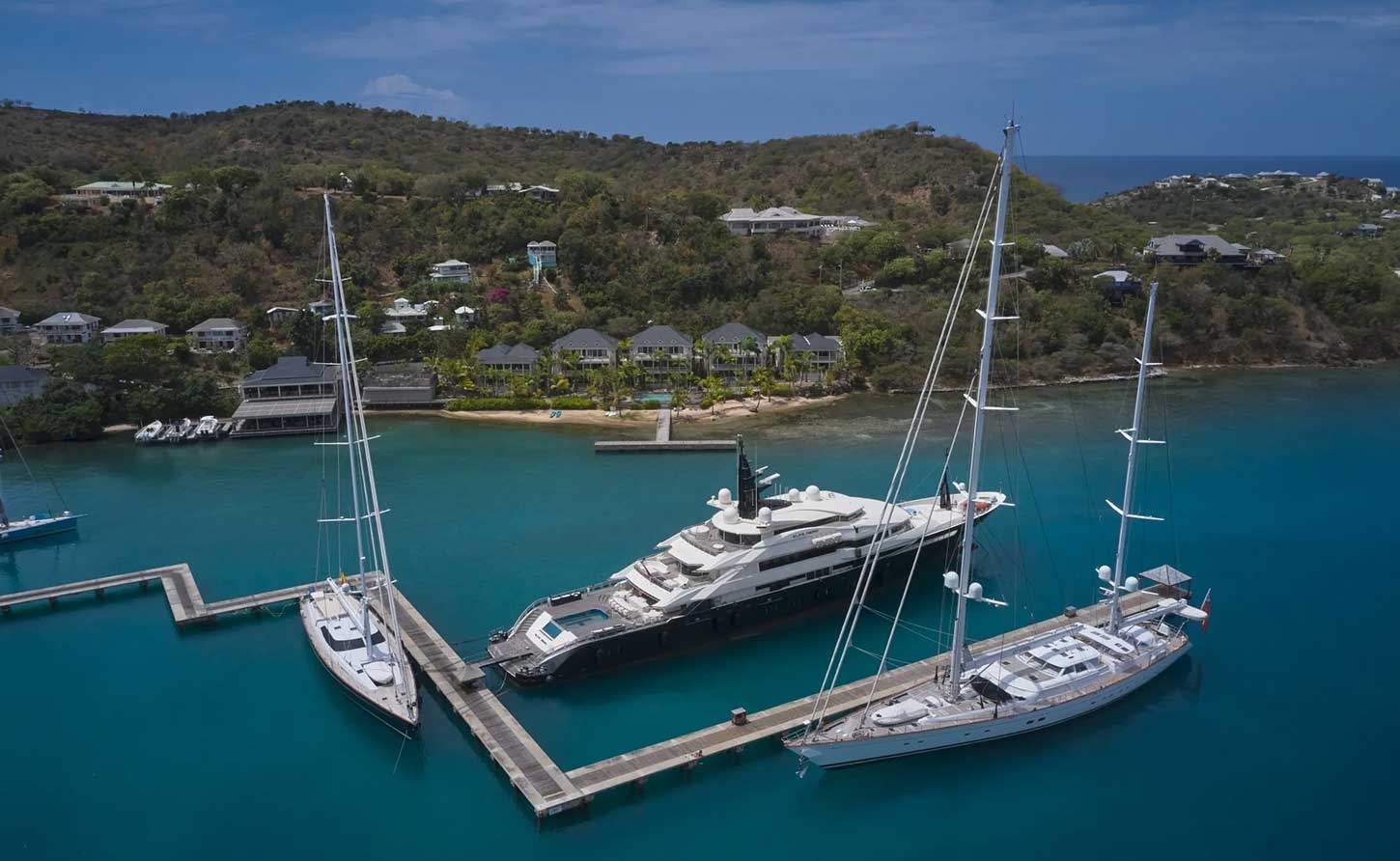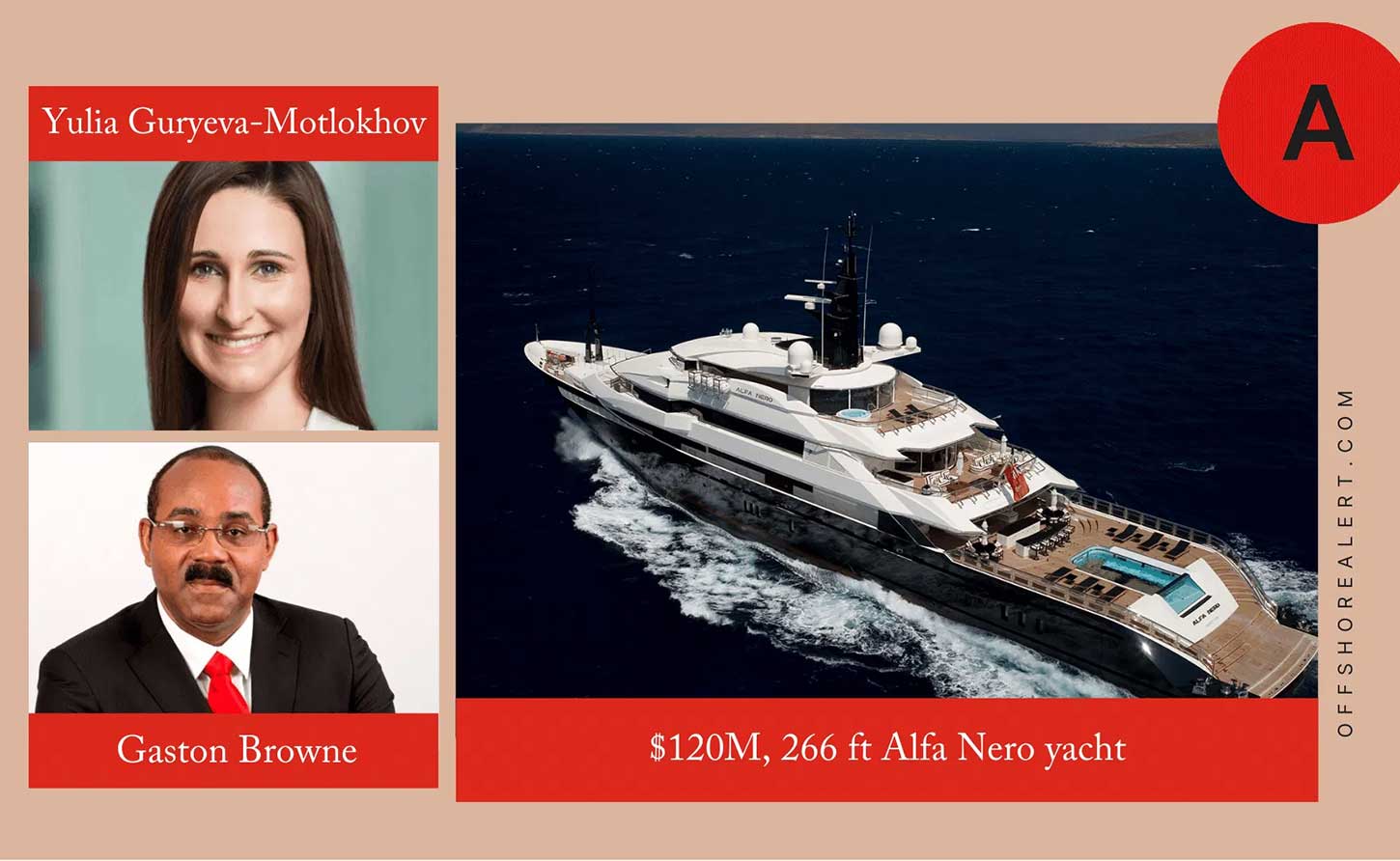ANTIGUA | The Yacht, The Oligarch's Daughter, and the Prime Minister: A Legal Battle Unveils Alleged Extortion Plot

NEW YORK, NY, April 17, 2025 - In a stunning legal counterattack filed April 11, 2025, Antiguan Prime Minister Gaston Browne and several co-movants have accused Russian oligarch's daughter Yulia Guryeva-Motlokhov of orchestrating a brazen "holdup, minus the mask and gun" through the American court system.
Their memorandum to the Southern District of New York paints a picture not of legitimate discovery but of judicial weaponization aimed at character assassination and economic sabotage.
At the center of this international drama sits the luxury yacht Alfa Nero, once owned by Guryeva-Motlokhov's sanctioned Russian oligarch father and abandoned in Antigua's Falmouth Harbour.
The vessel, seized and sold by Antiguan authorities for $40 million after obtaining proper U.S. sanctions clearance, has become the pretext for what the Antiguan movants describe as an extortionate fishing expedition into six years of their financial records.

The Antiguan movants—including Prime Minister Browne, three family members, four family-owned companies, and two government officials—argue that the application's true purpose was revealed in its original, telling caption: "In re Gaston Browne Corruption Discovery Application." The court later modified this to reference Guryeva-Motlokhov's §1782 discovery request, but the damage was done.
The memorandum cites public statements by the applicant's counsel characterizing the discovery process as a means to "expose the financial web behind [Prime Minister Browne's alleged] corruption" and claiming Browne has "used his position to enrich himself and his associates while advancing the interests of foreign regimes hostile to the United States."
Such statements, the Antiguan movants argue, reveal the application's true motive: to defame the Prime Minister and his government while threatening Antigua's economic lifeline—its international banking relationships—through "reckless and malicious allegations of systemic corruption and money laundering."
The memorandum methodically dismantles the applicant's claim that the requested discovery is "for use" in foreign proceedings—a statutory requirement under 28 U.S.C. §1782. It notes that Guryeva-Motlokhov's Antiguan case has already completed trial with submissions closed, while her Russian case targets the yacht's Turkish purchasers based on their compliance with U.S. sanctions, which she claims violates Russian law.
A third contemplated proceeding in the United Arab Emirates remains merely "a twinkle in counsel's eye," lacking the concrete foundation required under Second Circuit precedent.
 "The proffered objective—to obtain evidence that could be useful in a foreign judicial proceeding—is a pretext," the memorandum states bluntly. "The real purpose is to cause the biggest scandal possible for the Prime Minister and Government of Antigua & Barbuda, to put the nation in jeopardy of a cutoff by the international banking system... and thereby coerce a financial payoff to which the Applicant is not entitled."
"The proffered objective—to obtain evidence that could be useful in a foreign judicial proceeding—is a pretext," the memorandum states bluntly. "The real purpose is to cause the biggest scandal possible for the Prime Minister and Government of Antigua & Barbuda, to put the nation in jeopardy of a cutoff by the international banking system... and thereby coerce a financial payoff to which the Applicant is not entitled."
The legal filing further argues that even if statutory requirements were met, the court should exercise its discretion to vacate its March 17 discovery order under the Supreme Court's Intel factors, citing bad faith, overbreadth, and the nature of the foreign proceedings.
The subpoenas seek records of "nearly every international U.S. dollar-denominated transaction, for any purpose and of any nature" involving all 19 subjects, "without regard to whether there is any connection whatsoever to the sale of the Alfa Nero."
In perhaps its most damning assessment, the memorandum quotes Guryeva-Motlokhov's counsel telling the Associated Press that "the disappearance of millions from the sale of the Alfa Nero is just the beginning"—an admission, the movants claim, that the discovery seeks information irrelevant to any legitimate proceeding.
The legal confrontation exposes the complex intersection of post-Ukraine invasion sanctions, sovereign asset seizures, and international legal maneuvering.
The Alfa Nero sat abandoned in Antigua's harbor after Guryeva-Motlokhov's father was sanctioned, creating what port officials described as "an imminent threat to the environment" and economic development.
Antiguan authorities, acting under newly passed legislation, declared the vessel abandoned and eventually sold it with OFAC's blessing.
The memorandum portrays Guryeva-Motlokhov's Russian case as particularly troubling—an attempt to "target the purchasers of the Alfa Nero... for having acted 'in accordance' with U.S. sanctions." It asks the court not to become complicit in what it characterizes as a scheme to undermine America's own foreign policy objectives.
"The Court should not allow itself to be used in the promotion of such a scheme," the memorandum concludes, requesting intervention, vacation of the discovery order, and quashing of the subpoenas.
As this international legal chess match unfolds, it raises profound questions about the appropriate use of U.S. courts in foreign disputes—and whether discovery mechanisms intended to facilitate justice can instead become weapons of financial and political warfare.
-30-
